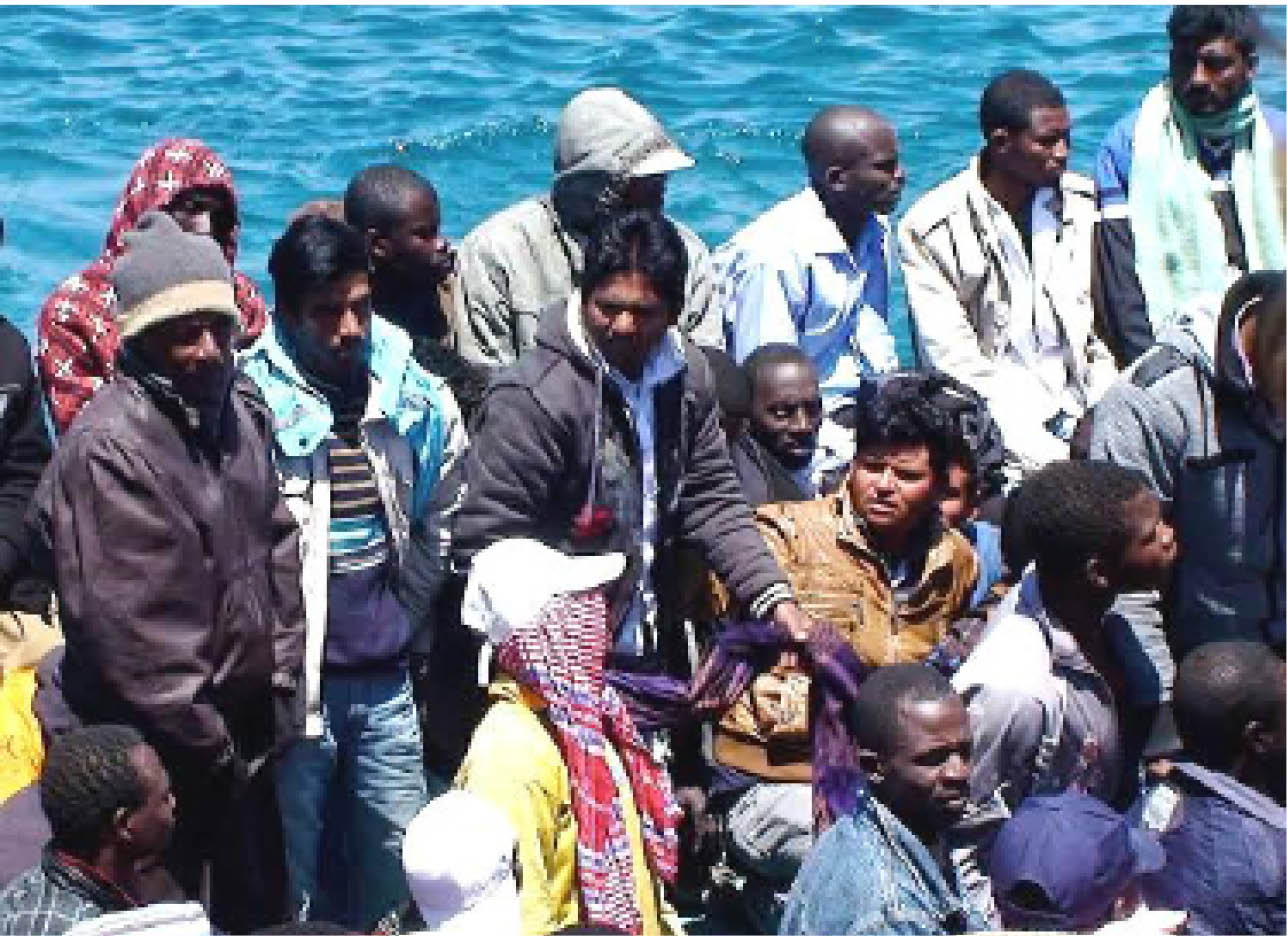Migrants as blackmailing tools
Over the past few months, there has been an upsurge in the number of migrants stranded on the Belarus-Polish border desperate to cross over into the European Union (EU). Poland is an EU member-state but the richer EU countries like Germany are their targeted destinations. Migrants, both those with genuine reasons and those with pretences, […]

FILE PHOTO: Immigrants struggling to go to Europe
Over the past few months, there has been an upsurge in the number of migrants stranded on the Belarus-Polish border desperate to cross over into the European Union (EU). Poland is an EU member-state but the richer EU countries like Germany are their targeted destinations.
Migrants, both those with genuine reasons and those with pretences, prefer the richer EU countries due to their particularly attractive provision for migrants and enabling migration policies. However, since the number of migrants always outweighs the resources budgeted for those provisions, the screening is quite strict. Consequently, only a tiny fraction eventually makes it, which explains why thousands of migrants go to the extent of endangering their lives in their desperate attempts to migrate to those countries and other wealthy nations elsewhere. Some of them somehow manage to make it to their respective destinations while many die in the sea, desert and other terrains, or end up stuck in exploitative conditions.
It’s in this context that thousands of migrants mostly from Syria, Iraq and other war-torn and unstable Middle Eastern, Asian and African countries are currently on the Belarus-Polish border kept off Polish territory by a barbed-wire fence and Polish security personnel. Belarus isn’t allowing them back either. They have been piling up there amid deteriorating conditions. In a video call with the BBC, an Iraqi migrant lamented that “There’s no way to escape; Poland won’t let us in. Every night they fly helicopters. They don’t let us sleep. We are so hungry. There’s no water or food here. There are little children, old men and women and families.” Also, out of desperation, there have been repeated but failed attempts by the migrants to force their way through.
Now, while on the surface this situation may look like any typical migrant issue, it’s actually an orchestrated blackmail attempt.
Belarus President, Alexander Lukashenko rose to power in 1994. The country was part of the Soviet Union that had collapsed in 1991. However, President Lukashenko has maintained an underlying Soviet communist tone in his style, which has kept him at loggerheads with the EU countries and their US ally.
Also, since the rise of Vladimir Putin to power in Russia, President Lukashenko found a reliable ally in him for his obsession with reviving and exercising as much former Soviet influence as possible.
President Putin supports but also manipulates Belarus in countering the expansion of the EU-dominated North Atlantic Treaty Organisation (NATO) towards where he believes should be Russia’s exclusive sphere of influence.
The EU imposed sanctions on Belarus last, which, in turn, decided to, among other things, manipulate the migrant card to blackmail it (EU) into lifting it. Belarus began facilitating the exodus of migrants into its territory for onward illegal crossing over into the EU via the Polish border. Hundreds of migrants were flown into Belarus capital, Minsk, on direct flights from Baghdad and other cities only to be systematically escorted by the Belarus security personnel to the border with Polish to cross over. The aim is to create migrant crises in some countries in the EU zone and expose their governments to unnecessary legal and economic dilemmas associated with handling the migrants, which may have serious economic and political repercussions on the governments.
President Lukashenko is perhaps inspired by the success of some leaders in manipulating migrants as blackmailing tools, e.g. his Turkish counterpart, Tayyip Erdoğan. As an opportunistic politician par excellence, President Erdoğan has fetched Turkey tremendous economic benefits and political concessions from the EU, by manipulating migrants as blackmailing tools.
Since the escalation of the Syrian crisis that triggered waves of migration from the country and other countries towards Turkey for onward crossing over into the EU zone, the Turkish government has managed to extort billions of Euros and significant concessions from the zone in return for controlling the exodus of the migrants into it. For instance, a five-year agreement reached between Turkey and the EU in 2006 in this regard saw the former reaping six billion Euros. Under the agreement, the EU also reluctantly agreed to simplify the Schengen visa process for Turkish citizens and to reactivate talks over Turkish ambition to join the zone.
Yet, as negotiations continue over the renewal of the agreement, which expired earlier this year, President Erdoğan had already threatened to let the migrants into the zone in a tactical move to extort commitments for more funds and more concessions on other issues especially considering the fact that the EU hasn’t delivered on its commitments regarding the Schengen visa and Turkish EU ambition.
Similarly, in 2010, former Libyan leader, Gaddafi equally managed to blackmail the EU into considering paying Libya billions of Euros in return for preventing the exodus of African migrants into the zone through the Libyan Mediterranean coast. He had warned the EU governments that the zone would turn “black”, as he put it, in view of the sheer number of African migrants desperate to migrate there unless it (EU) agreed to pay Libya at least five billion Euros a year to stop them. The arrangement was, however, overtaken by the 2011 uprising in the country that ended his life.
